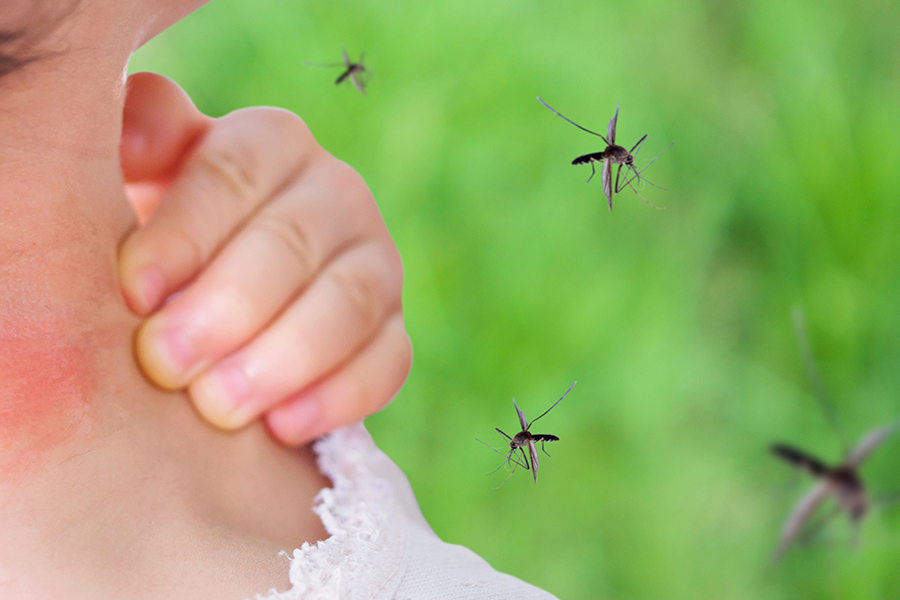
How is Malaria Affecting Our Economy?
Is Malaria Control Important for Our Economy?
Yes, it is. Malaria results in a reduction of 1.3% of the economy on the continent of Africa. This is an annual average figure. Absenteeism and productivity losses in Nigeria, for example, have an economic impact loss of 1.1 billion US$ every year.
Governments need to make more effort to change this. Uganda lost gross domestic product of US$11 million in 2003. In Kenya, primary schools lose 11% school days every year to severe malaria outbreaks. Kenya experiences and economic cost of 170 million working days each year.
Highlighting Malaria Awareness Each Year
Each year we mark the 25th of April as World Malaria Day. The day marks global efforts to control malaria. It also celebrates the progress made in the treatment of malaria.
The burden of malaria is an ongoing battle for governments across the globe. The costs of treatment are a genuine concern. Governments are looking for better methods for the management of malaria control.
Why Does Malaria Have Such a Negative Impact on African Society?
Malaria slows the economy down in African countries. It has serious growth and development repercussions. This perpetuates the cycle of poverty.
- Malaria is an economic burden in Africa. This calls for the improvement of the effectiveness of malaria control.
- Malaria highlights a disease of poverty and has a detrimental effect on the poor. Many of the poor living in malaria-endemic countries have little defence against malaria parasites.
- Transmission of malaria is from person to person. These are usually people who live in malaria-prone rural areas.
- Many live in poorer households in poorly constructed shacks and dwellings. Few of these dwellings offer resistance to malaria.
- Malaria among children is rife. The global and African distribution of malaria and poverty are largely child centric.
- Malaria is sympatric in Africa (occur in the same geographical area). Severe malaria cases in Sub-Saharan Africa are rampant.
- Limited formal education and poor engineering prevent the successful control of malaria. Malaria control interventions need to take the economic burden of impoverished people into account.
- Inaccessibility of healthcare contributes and impact negatively on malaria eradication. This is mostly amongst impoverished rural populations who cannot afford to see a medical professional or don’t trust healthcare workers.
- Beliefs in communities impact on malaria prevention activities. There is often a resistance to indoor spraying or seeking treatment early on. These cause delays and often lead to morbidity from malaria.
- Traditional healers often provide treatment that is largely ineffective. This often delays those seeking treatment until severe malaria symptoms motivate them to seek further help. Sometimes, it is too late.
How Does Malaria Affect the Economy in South Africa?
The burden of malaria was hefty when not controlled adequately in South Africa. The impact of malaria posed a negative economic cost to certain provinces. These included dire economic consequences and a reduction in tourism.
Indirect costs included expenditure on healthcare provision and malaria control programme delivery. Today, the impact stems from cross-border vector carriers entering the country carrying the disease. Malaria control activities are focused on education and access to health at the borders where the incidence of malaria is higher.
About Malaria-Endemic Countries in Africa
Malaria is a disease caused by the bite of infected mosquitoes. Effective treatment reduces malaria risk and death. Over 400,000 people succumb to malaria each year.
There is a real problem with malaria in children in Africa. Malaria is especially rife in children in sub-Saharan African. The control of malaria is essential.
Nigeria sees almost 53 million cases of malaria every year. The household level is 1 in 4 residents. Each year, malaria causes 8, 640 deaths in Nigeria. This translates to 9 death per hour. The economic consequences are vast.
Is there Hope at the End of the Malaria Tunnel?
A malaria vaccine surpassing the 75% efficacy goal has been invented. The World Health Organisation sets the 75% efficacy goal. These findings come from a 12-month trial period.
The trial was first launched in Burkina Faso in 2019. The malaria trial involved 450 children. They ranged in ages from 5 to 17 months.
How Are Malaria Hot Spots Determined?
The location, severity of infection, ecology, and climate all play a role. It is not necessarily determined by poverty. Malaria epidemics are almost always in poor areas where economic growth is low. Areas affected by malaria that can reduce malaria can grow substantially afterwards.
The effects of malaria on economic growth are substantial. Mechanisms behind the impact are not clear.
Prevent Bites When Travelling to Malaria Hot Spots by Wearing Mozzie Patches
There are many ways to prevent bites when travelling to malaria hotspots. These include malaria endemic provinces in South Africa. It also includes areas in Africa such as sub-Saharan Africa.
Wear the right clothing and use repellents wherever possible. Other measures include insecticide-treated bed nets and mesh on windows and doors.
Mozzie Patches are an easy way to prevent bites when travelling to malaria areas.



